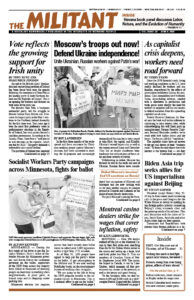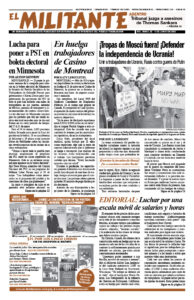Following are the remarks Mary-Alice Waters gave to the April 24 Havana International Book Fair presentation of Pathfinder Press’s recently released book, Labor, Nature, and the Evolution of Humanity by Frederick Engels, Karl Marx, George Novack, and Mary-Alice Waters. The book has been published in English, Spanish and French. The event was held at the Palacio del Segundo Cabo in Old Havana.
Waters is a member of the Socialist Workers Party National Committee and president of Pathfinder Press. Copyright © 2022, reprinted by permission.
As its title suggests, the book we’re presenting here today is about humanity’s long journey, about how we have arrived where we find ourselves, through a millennia-long process full of contradictions, dialectical leaps, unanticipated combinations and inevitable unevenness.
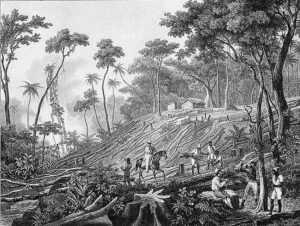

For all that, it is not a book primarily about the past.
This is a book that contains and cites extensively from the most profound and clarifying works by Karl Marx, Frederick Engels, and other communist leaders, rooted in materialist dialectics.
Yet for all that, it is not a book produced by or for philosophers. “Philosophy” was something Marx and Engels left behind them going on two centuries ago when they issued the Communist Manifesto, the program of the world’s first revolutionary workers party. As they wrote there, communism is not an idea or a doctrine “invented or discovered by this or that would-be universal reformer.” Insofar as it is a theory, it “merely expresses in general terms, actual relations springing from an existing class struggle, from a historical movement going on under our very eyes.”
So what is this book about? It’s primarily about the class struggle today. A book for working people searching for a way forward politically, and for youth attracted to the battles of the working class and its allies.
It is about understanding history, understanding that we both live and labor as part of nature, live and labor as biological beings, live and labor in history. In the words of anthropologist Peter W. Wood that our chairperson just read, it is a book that tells us “what a truly radical reading of the human past looks like, and how both biological evolution and social evolution have a major claim to our attention.” [See article.]
Without that knowledge, we remain prisoners of the present. We remain unable to see beyond the relations of capitalist exploitation and oppression that warp every aspect of our lives, social relations, personal values, observations … and “theorizing.”
Without that knowledge, we easily fall victim to pseudoscience and pseudohistory. We will never be able to chart a course toward the higher — that is, proletarian — moral standards that Fidel [Castro], Che [Guevara], Armando Hart and other historic leaders of the Cuban Revolution led the toilers of Cuba to make your own. And offered to revolutionists throughout the world to make our own.
Let me cite just one example of the “contemporary” observations you’ll find in the book. It is a short passage from Engels’ well-known polemic Anti-Dühring, which he wrote in 1877:
It is very easy to inveigh against slavery and similar things in general terms, and to give vent to high moral indignation at such infamies. Unfortunately all that this conveys is only what everyone knows, namely, that these institutions of antiquity are no longer in accord with our present conditions and our sentiments, which these conditions determine. But it does not tell us one word as to how these institutions arose, why they existed, and what role they played in history. …
When, therefore, Herr Dühring turns up his nose at Hellenism [Greek civilization] because it was founded on slavery, he might with equal justice reproach the Greeks with having had no steam engines or electric telegraphs.
Those are words that could have been written yesterday or today. Words that arm us against the Dührings of the here and now.
‘Social media,’ rulers’ weapon
As we all know and have been discussing this afternoon, one of the challenges the working-class vanguard now confronts has to do with the technological advances introduced by the internet and its interrelated extensions.
Across human history, all great scientific discoveries and advances in technology that have increased the productivity of human labor — from the invention of the wheel and the lever onward — have come with contradictory consequences for the toiling masses. Not only is the greater material wealth that’s created distributed unevenly, but the rate of exploitation of working people is also brutally intensified. Under capitalism, the introduction of new means of production simultaneously transforms them into means of destruction of land and labor.
If the internet and its associated technologies had been developed under the control of the working class, the future would be brighter for us all. In the hands of the capitalist rulers, however, it has been born as a pernicious weapon to advance their class interests against workers and farmers.
Not only has it extended, to previously unimaginable lengths, the hours of the day during which our labor is exploited. It is a weapon used to penetrate every aspect of our lives from infancy on, every minute of our day. It works to batter down all resistance to the petty-bourgeois social relations it promotes.
Far from the “social media” it claims to be, it atomizes and divides us. It celebrates the epitome of petty bourgeois self-promotion and self-interest. Under the banner of promoting individual “freedom,” its masters are the conscious enemy of social solidarity of the working class and our allies. These servants of capital do everything possible to undermine and destroy such solidarity.
In short, in the hands of the capitalist class, it is a new and poisonous counterrevolutionary force.
Armed with the knowledge and the political course the writings in this book offer us, however, a working-class vanguard of all nationalities, religions, skin colors, and both sexes — engaged in struggles together with millions of other working people — can overcome these obstacles. They can develop the experience, fighting capacities and political confidence to chart a revolutionary course. That is a road along which they can lead the toilers to take state power out of the hands of the propertied rulers and build governing institutions and a new state created by the working class.
That was the lesson of the Paris Commune and of the Bolshevik Revolution under Lenin’s guidance. It is the lesson the working people of Cuba led by Fidel have given us.
A long view of history
I want to say a few words about how this book was born. Looking at its beautifully designed cover, when I see my name in the same size type as the names of the historic founders of the modern working-class movement and a decadeslong leader of the Socialist Workers Party at whose knee I first learned about scientific socialism, I admit to being uncomfortable. It feels pretentious.
The two articles by George Novack included in the book — “How Humanity Climbed to Civilization” and “The Main Course of American History” — were written almost 70 years ago as classes he taught to members and young recruits to the Socialist Workers Party. Then as now, young people attracted to the communist movement knew nothing about the scientific foundations of Marxism.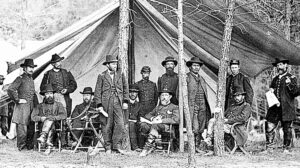
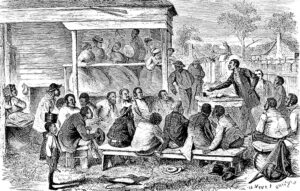
Novack’s classes, to which he gave the title “The Long View of History,” were directed toward “newly awakened minds.” His purpose was to offer “a popularized account of the main line of evolution from fish to mankind,” he wrote, and then from the origins of human society “to contemporary capitalism in the United States.” As he insisted, those classes presented “an extremely simplified outline of the immense and complex range” of that process.
The articles were first produced on a mimeograph machine — the advanced technology of the day — as an internal educational bulletin for Socialist Workers Party members. They were then published as a pamphlet in 1960, as a tool to win new members to the SWP and Young Socialist Alliance. The recruitment of a new generation was then accelerating under the impact of the victorious Cuban Revolution and growing mass proletarian-led struggle against apartheid-like racial segregation in the U.S. Novack’s classes have been kept in print ever since by Pathfinder Press and its predecessors, educating generations of workers and students.
But we didn’t have the pamphlet in Spanish. A couple years ago our longtime friend and compañera Esther Pérez — who planned to be with us here today, but was unable to for medical reasons — told us she had some time available and would like to translate something. This excellent Spanish translation of “The Long View of History” was born.
Our plan was to get a new edition out quickly in both English and Spanish, for which I would write a new, short preface. But as often happens when we start working on a book, like all things in nature and society, it evolves. We soon realized that too much had transpired in the class struggle the last 70 years to simply reprint the original without updating, amplifying, and reinforcing some of the material in Novack’s articles.
By the time we went to press, we had added Engels’ “The Part Played by Labor in the Transition from Ape to Man” and the opening section of the Communist Manifesto, “The Epoch of the Bourgeoisie and the Forging of Its Gravediggers.” As well as excerpts from writings by longtime SWP leader Jack Barnes on the vanguard role in the U.S. class struggle of workers who are Black.
We added many illustrations and what we call “text boxes.” Some focused on the Second American Revolution, commonly known here in Cuba as the War of the Secession, the name the slavocracy gave one of the bloodiest wars in history. Others pointed to the revolutionary class character of largely Black-led governments in the former slave states during the post-Civil War decade of Radical Reconstruction. We integrated the Cuban Revolution into these pages as well. And brought in the writings of Evelyn Reed on the importance of women’s productive labor in forging the first social bonds of humanity.
In the process, the “brief preface” by me was also transformed. Through collective work, the introduction evolved into a more substantial article, “Without Materialist Dialectics There Can Be No Working-Class Revolution,” placing these historical lessons in the context of the class struggle today.
We believe the book we’re discussing this afternoon, the product of this extended effort, is a more powerful weapon.
Anti-science, anti-working-class politics
In my remaining time, let me focus on just one of the dozens of questions dealt with in this book — one of the reasons we expanded its scope to include what Peter W. Wood refers to as the refreshingly “frank materialism of the old-fashioned Marxist left.”
He’s correct. The course advanced in these pages is the only possible counter to the poisonous anti-working-class, anti-science, race-baiting, “identity politics” and “cancel culture” that increasingly permeates privileged middle-class layers in U.S. universities, media, arts, NGOs, the tech world, the legal, medical and other professions, to say nothing of the entire “left.” And it is increasingly dominant in the Democratic Party leadership.
For this meritocracy, who consider themselves an intellectual elite, the vast majority of the working class are, as Hillary Clinton blurted out during her 2016 presidential bid, “a basket of deplorables,” a “racist, sexist, homophobic, xenophobic” enemy, “irredeemable.”
Countless books have been published the last few years claiming to “reexamine” the history of the United States to show that slavery and anti-Black racism — not capitalism, as Novack, building on Marx and Engels, so cogently explains — has been the driving force of U.S. history. This “new origin story” teaches that anyone born with light-colored skin carries the incurable “disease of whiteness.” And that “white supremacy” is the underpinning of all Western civilization, whose history and contributions to the cumulative culture of humanity must be eradicated from schools, universities, the arts, and libraries worldwide.
Primary and secondary school administrations have attempted — over increasing parental resistance — to introduce textbooks for children as young as kindergarten teaching them that they might not be a boy or a girl, that there are not two sexes determined by biology. Instead, there is supposedly a near infinite number of genders, with no biological foundation, from which they can “choose.”
Anyone — such as J.K. Rowling, author of the popular Harry Potter books — who dares to state simple scientific facts is charged with being “transphobic” and becomes the target of a modern-day lynch mob orchestrated over social media. Book contracts are broken, speaking engagements and performances canceled, firings handed down and lives torn apart.
The most important thing we hope you’ll take away from this event is the recognition that the political offensive of this privileged middle-class layer is hated and resisted by the working class in the U.S. — of all skin colors. It is this class polarization that underlies all politics in the U.S. Moreover, this polarization has been accelerated by the consequences of the pandemic and its economic repercussions, including a now soaring inflation, with worse yet to come.
Three brief examples capture the reactionary character of the 21st century book burners and witch hunters.
Howard University, the oldest and most prestigious Black university in the U.S., announced a year ago that it is eliminating its classics department. One of the most prominent intellectuals in the U.S. who is Black, Cornel West, at that time a professor at the Harvard University Divinity School, wrote a searing opinion piece in the Washington Post denouncing this decision for its “deep intellectual narrowness,” a sign of the moral decline “running amok in American culture.”
He reminded readers that the famous abolitionist and former slave, Frederick Douglass, began his “great journey of emancipation” by defying the slave owners’ laws that forbade him to learn to read and write, risking death to get hold of and read the likes of Socrates, Cato, and Cicero. That Martin Luther King refers to Socrates three times in his famous 1963 “Letter from Birmingham Jail.”
And we must add Malcolm X, who began his self-transformation not only by reading every word in the dictionary he found in the prison library, but every book he could get his hands on there — from W.E.B. Du Bois and Carter G. Woodson, to works by Homer, Shakespeare, as well as Spinoza, Kant, and others “of the old philosophers, Occidental and Oriental,” as Malcolm put it in The Autobiography.
A second example. The Princeton University Ballet, a student-run ballet club, recently drafted a document — circulated by the university’s Dean of Students and its Office of Diversity and Inclusion — denouncing the “perfect white standard” of ballet, declaring it to be “an imperialist, colonialist and white supremacist art form.”
The author who brought this information to light responded, “Gosh, better not tell these woke dingbats about Alicia Alonso, the Cuban prima ballerina, founder of the Ballet Nacional de Cuba, and ardent Castroite.”
Third. A so-called climate activist in Washington, D.C., recently showed up at a meeting of the DC Metro Coalition in Solidarity with the Cuban Revolution, which was planning a public meeting to which they had invited as a speaker the Cuban ambassador to the United States, Lianys Torres Rivera. It was the first time this person had attended a coalition meeting. She immediately demanded that the invitation be withdrawn. Why? Because she said she had information that the ambassador’s grandfather had owned slaves.
None of this is about teaching the real history of the United States or the world. The Socialist Workers Party and Pathfinder Press have been doing that for decades. But there is no separate “Black” history, or “women’s” history, or labor history for that matter. Our histories, our social relations are dialectically and inseparably interwoven.
Of course racism is systemic in the United States. That’s been true since the first European settlers arrived. But the contradictory social system of production and reproduction that has evolved from that time to this is not “white supremacy.” It is capitalism. Just as the social system responsible for women’s second-class status is not sexism, or patriarchy, let alone “the family.” It is private property, on which all class society is built.
It is only a strong, increasingly class-conscious and battle-tested working class, united across lines of race, sex, nationality, religion, and language, that can change these relations of exploitation and oppression.
That knowledge is what brings us together here today.
* * *
I will end on one final point.

It is safe to say that for all of us here, the war that is devastating Ukraine is never far from our minds, even as we talk of other burning issues, as we’re doing right now. We undoubtedly have a range of different positions on the roots of Moscow’s military assault, which we’re not here today to discuss.
But we all know, or at least sense, that the first large land war on the European continent in more than 75 years signals a new stage in the unraveling of the imperialist world order established by the victors of World War II.
None of us will be able to ignore the consequences, which have barely begun to unfold.
The politics we are discussing here today have everything to do with our ability to chart a working-class course in this unknown future.
That is why the opportunity to have these kinds of discussions at the Havana International Book Fair with comrades-in-arms is so vital for those of us who feel the weight of our responsibilities in the class struggle on the other side of the Florida Straits — the bastion of imperialism, where the future of humanity will ultimately be settled.
That is why we thank all of you here today, and especially the members of our panel, for this opportunity.
Gracias.
